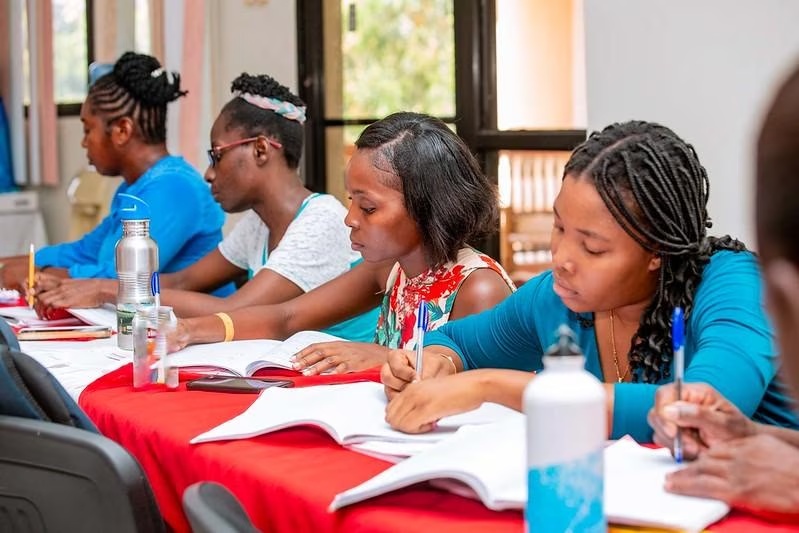Understanding Brain Drain
Brain drain, at its core, refers to the substantial loss of human capital from one region to another. It is a persistent issue faced by developing nations, including Haiti. It occurs when talented professionals leave their home countries to pursue better opportunities abroad, driven by a lack of prospects or political instability in their native lands. This phenomenon not only depletes the source region of its human capital but also shifts the focus to the areas receiving these individuals, creating a ripple effect across industries and communities.
The effects of brain drain are multifaceted. When skilled individuals leave, they create a significant gap in their home country's human capital—a gap that is not easily filled. This depletion leaves a void that hampers progress and innovation. The result is a depletion of essential talent, which can hinder national development and perpetuate a cycle of inequity and instability. Brain drain represents a critical challenge that exacerbates existing social and economic issues.
Brain Drain in Haiti's Context: The Role of Education
In the context of Haiti, brain drain has been a persistent challenge. The political instability, economic hardships, have pushed many skilled Haitians to seek opportunities outside the country. This exodus is not merely a result of individual aspirations but is deeply rooted in systemic issues, including an inequitable education system. Inequities within Haiti’s education system exacerbate this trend. In a country where access to quality education is limited to a privileged few, those who receive quality education and training are often the ones who can afford to leave, further widening the gap between the educated elite and the rest of the population. This perpetuates a cycle of inequality and lost potential, as the majority are left without the tools and opportunities needed to reach their full potential and contribute to the country's development.
However, this issue is not an insurmountable problem.
Imagine a different scenario: a Haiti where everyone receives quality education from the start, equipping them with the skills, knowledge, and mindsets to thrive and contribute to their community. This is the vision and mission of Anseye Pou Ayiti (APA): to transform the education system to ensure that all Haitians, regardless of their background, have the opportunity to contribute meaningfully to their country’s development.
Anseye Pou Ayiti’s Response: Investing in Haiti’s Human Capital
At Anseye Pou Ayiti (APA), we are committed to addressing interconnected problems in education at the root. Our mission is to create a robust education system that equips Haitians to reach their full potential. By investing in education equity and fostering a culture of leadership and collective action, APA is working to equip Haitian youth to become the leaders of tomorrow.
APA’s focus on building local capacity and leadership, is laying the groundwork for long-term sustainable development and creating a self-sustaining cycle of positive change. Our initiatives are creating a new narrative for Haiti—one where local talent is harnessed and nurtured, where systemic inequities are addressed, and where a generation of leaders is equipped to drive positive change. We are working to set Haiti on a path toward a brighter, more equitable future.
1. Equipping Local Leaders: APA’s work is centered around equipping a network of local civic leaders who are deeply investing in driving change within their communities. By investing in these leaders, we are fostering a sense of ownership and responsibility towards local development. This approach helps reinforce talent within the country and ensures that the skills and knowledge gained are utilized for the benefit of Haiti. The skills and knowledge gained are used to address local challenges and contribute to the nation’s progress.
2. Transforming and Re-Haitianizing Education: Our efforts to reform Haiti’s education system are aimed at providing all students with access to high-quality education. By focusing on inclusive and culturally relevant curricula, we are ensuring that education is not a privilege of the few but a right for all. This shift helps level the playing field. Our approach not only makes education more relevant and engaging for students but also helps build a sense of pride and ownership in their learning. By integrating local context into the curriculum, we are helping to cultivate a generation of learners who are more connected to their heritage and motivated to contribute to their country’s development.
3. Building a Collective Movement: Our programs emphasize the importance of collaboration and community-driven solutions, reinforcing the idea that collective action can lead to systemic change. This vision involves redefining leadership and equipping local communities to take charge of their own development. By fostering a culture of collective action, we are creating an environment where talented individuals can thrive and contribute to national progress. Through collective action, our leaders are tackling the barriers to education and development that, creating a ripple effect of transformation throughout Haiti.
4. Bridging the Gap: Our approach aims to bridge the gap between education and opportunity, ensuring that individuals who receive quality education have the means and motivation to contribute to their home country. By focusing on local solutions and equipping communities, APA is addressing these systemic issues head-on.
5. Demonstrating Impact
The impact of our efforts is evident in the achievements of our programs. With over 21,000 students reached and an impressive average passing rate of 85%, with some classes achieving 100%, APA is proving that quality education can lead to significant outcomes. Our initiatives are not only enhancing individual potential but also contributing to a broader shift in the education landscape and creating opportunities for growth and development within Haiti.
Transforming Haiti’s Trajectory:
Our efforts are designed to build a future where Haitians can thrive within their own communities. By focusing on local culture, history, and identity, APA is redefining leadership for Haitians, by Haitians. This approach ensures that the next generation of leaders is deeply connected to their roots and committed to driving positive change from within.
To learn more about our initiatives and how you can get involved, explore our website and follow us on social media. Together, we can turn the tide and ensure that Haiti's greatest resource—its people—can thrive and lead the way towards a prosperous future. Let’s work together to build a future where Haiti’s brightest minds shine brightly at home.
Addressing Haiti’s multifaceted challenges, requires a multifaceted approach. As we continue to build a network of equipped leaders, we are creating a brighter, more equitable future for all.
Ephodza Poullard

